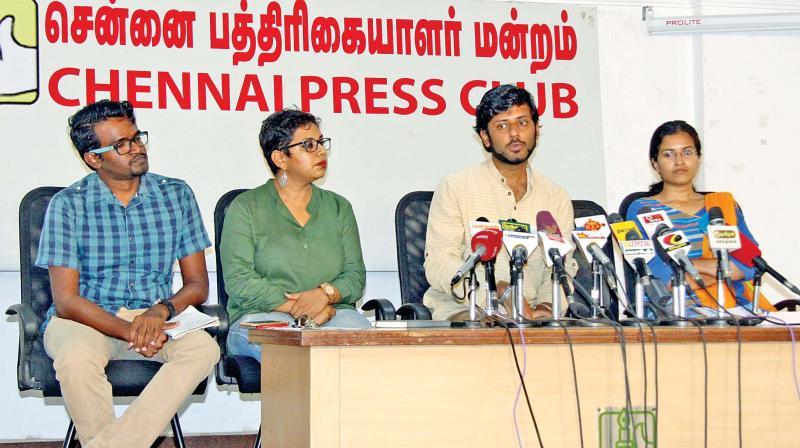Chennai: Team bares oil spill health hazards
Doctors, environmentalists suggest measures for future disaster management.

Chennai: Indian Coast Guard and Kamarajar Port’s claims of providing the required equipment for the workers and volunteers at the oil spill (which took place last month) sites on the Chennai coast, was thrashed by a private report released by a team of doctors and environmentalists on Monday.
Although the oil spill sites were equipped with medical facilities like ambulances, to address emergency cases - if any - they lacked preventive measures, alleged the three-member team.
Workers and volunteers had developed acute ocular (eye irritation) and respiratory symptoms (throat irritation, chest tightness and cough), headache, nausea and skin irritation, since the day they began work at the sites.
Owing to the strenuous work schedule, heavy physical workload and long duration of work, a few had reported musculoskeletal problems like fatigue and lower back pain, besides suffering from giddiness and muscle cramps, the report said.
Questioning the official apathy, members of the fact-finding team pointed out that the makeshift medical unit was set up only a week after the incident. “Amma canteen’s kitchen, which is 200 meters from the disaster site, had been converted into a medical unit on February 4.”
Respondents were in direct contact with the oil, which has perilous chemicals. The gloves and rubber boots worn by workers could not prevent the oil from reaching other parts of their body. As the public, including children, had easy access to the oil spill sites, there is a severe threat due to the exposure to the toxic chemicals, the report added.
“Most wire tenders deployed at the site were wearing the usual rescue service uniform - fluorescent T-shirts and shorts – with no intention of guarding themselves,” said Arun Krishnamurthy of the Environmentalist Foundation of India.
Ironically, the workers assigned to clear off the oil pollution were also adding to the same. “While there were two mobile toilets at the site, workers were washing their oily hands and legs at several drinking water sources of Bharthiyar Nagar.
The use of public water sources for the cleanup crew’s personal hygiene could lead to further contamination of the drinking water sources,” he added.
A batch of monitoring officers, including police personnel, revenue department officials and fire workers, were not provided with masks, which eventually resulted in them developing respiratory ailments, the report stated, adding that no prior medical check-up was conducted on them.
The fisher folk faced the maximum threat as they were provided with just gloves and no guards for the body. “Fishermen had admitted that their participation in the cleanup activity was by mere force, as their livelihood is dependent on the sea. They were paid Rs 500 every day for their efforts.”

